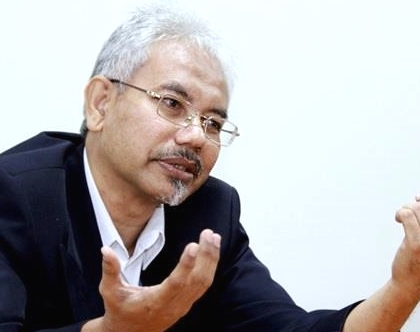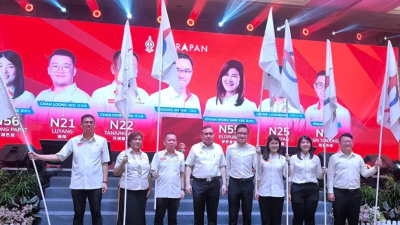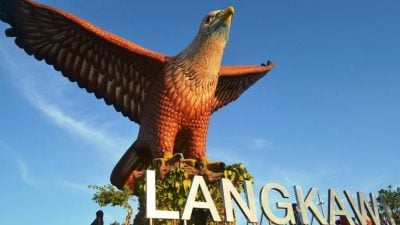
By Professor Dr. Mohd Tajuddin Mohd Rasdi
I am writing this article to present my view about the issue of historical and religious insensitivity concerning the demolishing of a Hindu Shrine in Kedah by the Civil Servants and the Elected Representative of the People. I am going to use the lessons of history, religious harmony and the meaning of democracy to argue my points. I agree with the Chief Minister that the issue is not a racial or a religious issue of conflicts but to me it is more about ignorance and insensitivities of the state officials and the politicians in handling this matter. The manner of handling such a sensitive case will further erode our national harmony as a multi-religious country and will determine the fate of thousands of other shrines perhaps in the same category in Malaysia.
I do not think that there will be any Malay politician who will defend the Hindus in Kedah because that politician and his or her party will probably lose votes from the ethnic group that the state officials and politicians in Kedah belong to. I do not think there would be any Muslim academic who would also rise to present this issue because he or she would probably lose friends and important contacts from that religious adherents. I am writing this as an ordinary Malaysian who cares about the feelings of my brethren citizens. I am writing this as a responsible academic who believes that knowledge is to serve all people and not just a tool of self-promotion. Lastly I am also writing this as a Muslim who do not wish to answer Allah in the Hereafter when He asked why justice was not given to all people regardless of race, religion or culture.
From the perspective of history, before the country called Malaysia came into being, there were different laws or norms governing land usage subjected to land ownership and mutual give and take between peoples. Some shrines were set up because indentured laborers were brought in willingly or not into this country. Being humans, these laborers have feelings, values and beliefs and they set up shrines through permission of those who owned the land or simply by the owners simple tolerance. When modern Malaysia came into being certain land use were re-gazzetted and roads as well as zones for commercial, residential and other uses were formulated. Thus, when a road is being planned and an object hinders its development, the state would go through a process of removing it by giving notices and discussions or simply make an executive decision to just demolish the hindrance. Hindrances could be an illegal advertisement signage or a family’s house or several family houses or a well or any other artifacts. However when the artifact is a shrine, it should be understood that this piece of object has serious religious, cultural and historical value to a whole community of people. Its relocation must take into account that it would still be accessible to the community that worshipped it. I would expect the removal of a piece of statue and its ‘house’ should be removed as an intact piece preferably by civil servants of the same religious faith.
Just bulldozing the whole thing presents a case of total lack of sensitivity, ultimate ignorance and complete disrespect for history, religious artifact and the democratic responsibility of serving the people.
Democratically, the Chief Minister must remember that he was voted in by the people which includes Hindus. Or, in his case, the Hindus voted another party but because of treachery, the government changed hands without the will of the people. Whichever the case, the Chief Minister is not like the Raja of the old Tanah Melayu who can take livestock or food from peasants at will. The civil servants are paid by the taxes of the rakyat and all state land that has no private ownership in truth belong to the people of Kedah and Malaysia, including the poor Hindus who worshipped the shrine. I have said in a previous article that a democratic country means that the country belong to the people and that every citizen born has two servants, the Chief Civil Servant and the Chief Minister or Prime Minister. These two are not colonial landlords or Rajas.
Thirdly, precious artifacts must be treated with respect. What if the state official discovered dinosaur bones in the middle of building roads or the foundation of a lost city? Would the state discard or destroy these artifacts? Similarly, artifacts such as a stone deity even though it is 70 or 100 years old has more important value than history but a value of spiritual belief. When the Taliban destroyed the historical monuments of giant statues, that was a great lost to the whole history of humanity. The state officials and the politicians in Kedah seems to be acting in an almost similar spirit. Quoting the law that once upon a time never existed when the deity was placed is an oversimplification of a responsibility bordering on callousness and derelict of duty. All laws have their contexts and the modern law may often have very few clauses related to deities. That is why we need responsible elected representative in a democracy as well as intelligent civil servants to interpret the law within a consideration of culture, religious harmony and social understanding.
Finally, I simply wish to say that if we want ourselves, our race, our religion and our dignity to be respected by others it would really pay off if we begin by a gesture of respecting others first. This simple principle of mutual self-respect should be the badge of merit for anyone seeking a public office to serve the real masters of the state…its people.
(Professor Dr. Mohd Tajuddin Mohd Rasdi is Professor at a local university.)
ADVERTISEMENT
ADVERTISEMENT


































